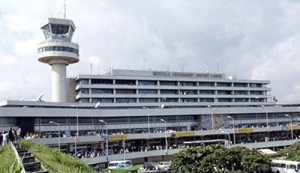More Foreign Airlines Quit Nigeria Over Stuck Fund

Barely a month after United Airlines disclosed plans to quit the Nigerian airspace, more foreign airlines are already weighing their stay options.
The development is not unconnected with fall in passenger demand and inability to repatriate funds in the last one year – both of which are fallouts of an ailing economy.
The once viable sector has attracted a lot of uncertainties and now “most unfriendly” to both local and foreign operators that cannot afford to run at a loss.
German carrier, Deutsche Lufthansa AG broke the silence early last week, saying its operations in Nigeria are now “closely monitored” in the light of circumstances.
The Managing Director for sub-Saharan Africa of the German carrier, Claus Becker, said it had made “minor adjustments” to winter flights to Africa’s biggest economy, to cope with the current realities.
It would be recalled that the United States carrier, United Airlines, with several years of operations and at least one frequency per day, is quitting for reasons not unconnected with low patronage and millions of dollars trapped in the system.
The announcement came barely six weeks after the Spanish national carrier, Iberia Plc, stopped flights to Nigeria, citing dwindling passenger traffic as the reason.
Though British Airways (BA) had denied plans to quit flying the Nigerian route, the English carrier has recently deployed planes with smaller capacity that were considered suitable for the shrinking market.
According to International Air Transport Association (IATA), an organisation that monitors foreign airlines’ stuck funds around the around, said no fewer than $600 million (N120 billion) is held in the Nigerian economy.
Sources said both Delta and United’s funds are in the region of $180 million. Those of Air France-KLM are estimated to be over $150 million.
The total of BA’s trapped funds is $100 million as at March 2016, while Iberia had $5 million of its funds held before the airline ceased operations in Nigeria.
Though the situation is not peculiar to the country, IATA had appealed to the Nigerian government to release the funds, saying their survival depends on it.
Minister of State for Aviation, Senator Hadi Sirika, at a recent meeting with members of the Airline Operators of Nigeria (AON), had reiterated that plans were on to give the industry a foreign exchange priority and free the stranded funds.
Sirika said: “I have been to the Central Bank of Nigeria (CBN) to resolve forex matter, and I would not stop. I have put a call across to the Governor of CBN, and I would ensure that both domestic and foreign airline operators have access to forex as against the rumoured disparity in terms of access.”
“No matter how bad the forex situation is, I would tidy the way and ensure that things are to the advantage of the airline operators because you must be able to access hard currency to remain in business,” he said.
Nigeria is second to Venezuela on the list of countries with highest number of trapped funds globally. While Venezuela traps a total $3.8 billion in its economy in the last 17 months, others like Sudan has $360 million for four months; Egypt, $291 million in the last four months and Angola, $237 million for seven months.
For Nigeria, IATA said that repatriation issues arose in the second half of 2015 when demand for foreign currency in the country outpaced supply and the country’s banks were not able to service currency repatriations
While its operations in Nigeria are “closely monitored”, Lufthansa will triple passenger capacity on routes to Nairobi to tap increasing demand from a tourism-industry revival, Becker said.
The German airline will begin operating the Airbus Group SE’s A340-300 wide body aircraft into the city starting in September, tripling its carrying capacity to 298 passengers from 89 currently.
The carrier had planned to operate an A340 on the route after cutting operating costs to destinations where yields are weaker, partly by ripping out first-class berths and installing a smaller business class.
Lufthansa reported a load factor of 94 percent on the Nairobi-Frankfurt route between January and April this year, Becker said, referring to the industry term for percentage of seats filled.







